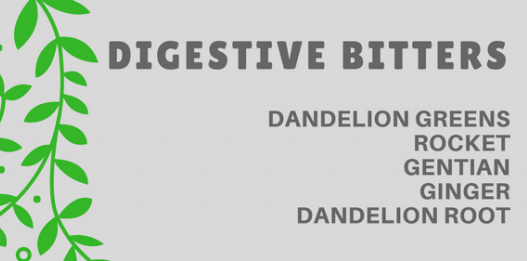by Mindy Duncan | Clinical Naturopath
We talk a lot about the importance of good digestive health here at Vive. Why pre-biotics are essential, which probiotics are most beneficial for certain conditions & generally how to optimise your microbiome. However, one aspect of digestive function that often gets overlooked is stomach (gastric) acid and its importance in digestive function & long-term wellness.
And guess what, it’s really, really important! Maybe even the most important process in digestion!
What role does stomach acid play in digestive health?
Stomach acid production essentially begins when you start chewing food in the mouth. The sight, smell & thought of food, which signals to your brain that you’re about to eat, also plays an important role in this process. Both of these processes activate the production of gastric juices & digestive enzymes in preparation for when food actually enters the stomach. Gastric acid itself doesn’t digest food, however it plays a crucial role in activating pepsinogen which in turn releases pepsin, an essential enzyme in the breakdown of proteins.
When food is sufficiently broken down, as it should be, the process of nutrient absorption is much more efficient. There is also much less burden placed on the digestive tract, thereby reducing irritation to the gut lining & incidence of gastric reflux, indigestion & flatulence.
The acidic pH of the stomach acid also plays an incredibly important role in immune defense by preventing invading pathogens from getting down into the intestines. When we have insufficient production of acid we run the risk of gut infections & conditions such as Small Intestinal Bacterial Overgrowth (SIBO) (read more SIBO about it here).
Other major roles of the stomach include:
- solubilising B vitamins.
- converting non-haeme iron into it’s bioavailable form.
- production of endocrine hormones ghrelin & leptin which regulate hunger & satiety.
- motility of the digestive tract in order to promote regular eliminate via the bowel.
What factors impact our stomach acid production?
Stress
Gastric acid production is highly regulated by the nervous system, therefore our mood, how we feel & how stressed we are can have a huge impact on our digestion.
To put it simply, the parasympathetic (rest-and-digest) arm of the nervous system governs digestion, this is when we are relaxed & ready to eat. However, when we are stressed & the sympathetic nervous system (fight-or-flight) becomes dominant the production of gastric juices are greatly inhibited. This is occurs due to blood being shunted away from the digestive tract in preference of systems necessary to quickly get you away from that “perceived” threat. Unfortunately, it’s fight-or-flight that most people live in most of the time.
If you’re stressin you ain’t digestin!

Reliance on Antacids
Whilst antacids may be useful in relieving symptoms momentarily, long-term use can be detrimental to digestive function. Overtime this acid suppression can lead to inadequate digestive function & nutrient deficiencies. You may notice large amounts of undigested food particles in your stool, frequent bloating immediately after eating or consistent reflux, especially when laying down.
Eating too many refined foods
A diet full of refined foods is a diet void of nutritional value. Over-consumption can lead to deficiency of nutrients such as zinc, which are essential to digestion. Refined foods are also greatly irritating & inflammatory to the gut & may lead to increased incidence of indigestion, reflux & imbalance of gut bacteria.
How do we improve our stomach acid secretion?
Luckily there is so much we can do to support the natural production of digestive enzymes.
Bitter herbs
Bitter herbs activate the bitter receptors in our mouth, promoting salivation, stomach acid & gastrin production. The best way to incorporate bitters into the diet is 5-10 minutes prior to eating, slowly chew or drink the bitters (if using liquid herbs add 10-20 drops into a small glass of water). It’s also really important to actually taste the bitters in order to activate this process, taking a capsule won’t have the same effect unfortunately. There’s a reason why Apertifs are such a big (& essential) tradition in European food culture.
Eat mindfully
The sight, smell & thought of food has a profound influence over salivation & preparing the body to digest food. Just the act of sitting down & focusing on the meal in front of you can play such an important role in the initial stages of digestion.
When eating ensure you are always sitting down, reduce any distractions (including mobile phones & television) & just focus on eating. Enjoy your food. Never eat on the run!
Reduce Stress
During the “fight-or-flight” response, in preparing the body to run away from a “perceived threat”, blood is shunted towards the organs necessary to get us out of danger (i.e. arms & legs, heart, lungs). Meaning blood is shuttled away from digestion, temporarily inhibiting its function.
Unfortunately, no matter the “perceived threat” the sympathetic nervous system responds exactly same. If you struggle with chronic stress consulting with a Naturopath or Nutritionist can be really beneficial & allow you to appropriately manage it long-term.
Zinc
What doesn’t zinc do! Zinc is an essential co-factor in the production of the enzymes required for digestion. It can be a bit tricky with zinc however, adequate digestive function is required for the absorption of zinc & zinc is essential for adequate digestive function. Zinc deficiency has been linked to reduced gastric acid secretions & increased risk of gastric ulcers & compromised immunity.
If you’re struggle with you’re digestive health supplementation can be a fantastic way of improving your zinc status quickly & efficiently. Always consult with a Naturopath or Nutritionist prior to commence zinc supplementation for appropriate dosage.
Book in with a Naturopath or Nutritionist!
Sometimes things can be much more complex than meets the eye. If you have been experiencing symptoms for a long period of time seeking support is the most efficient way to resolve these complaints. Naturopaths & Nutritionists are highly trained to assist you with optimising your digestive function & achieve long-term health & vitality.
Click here to book in with a practitioner.


